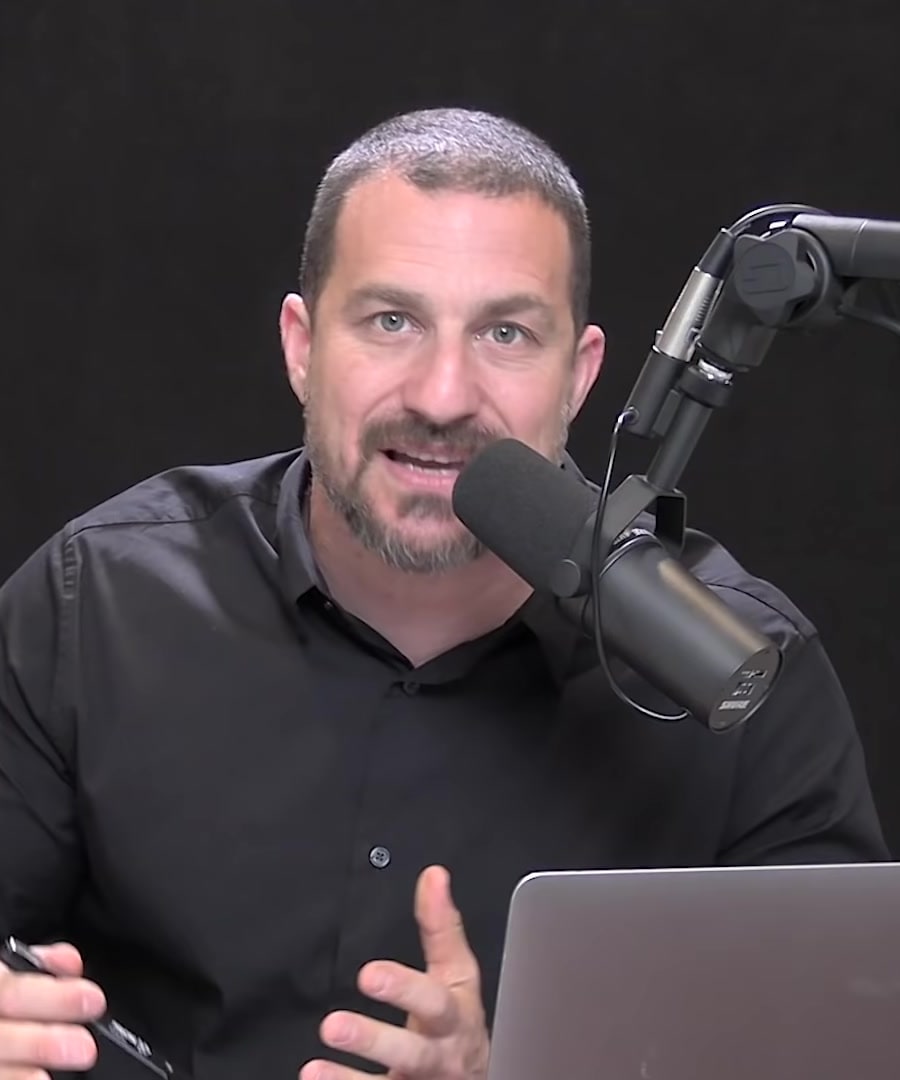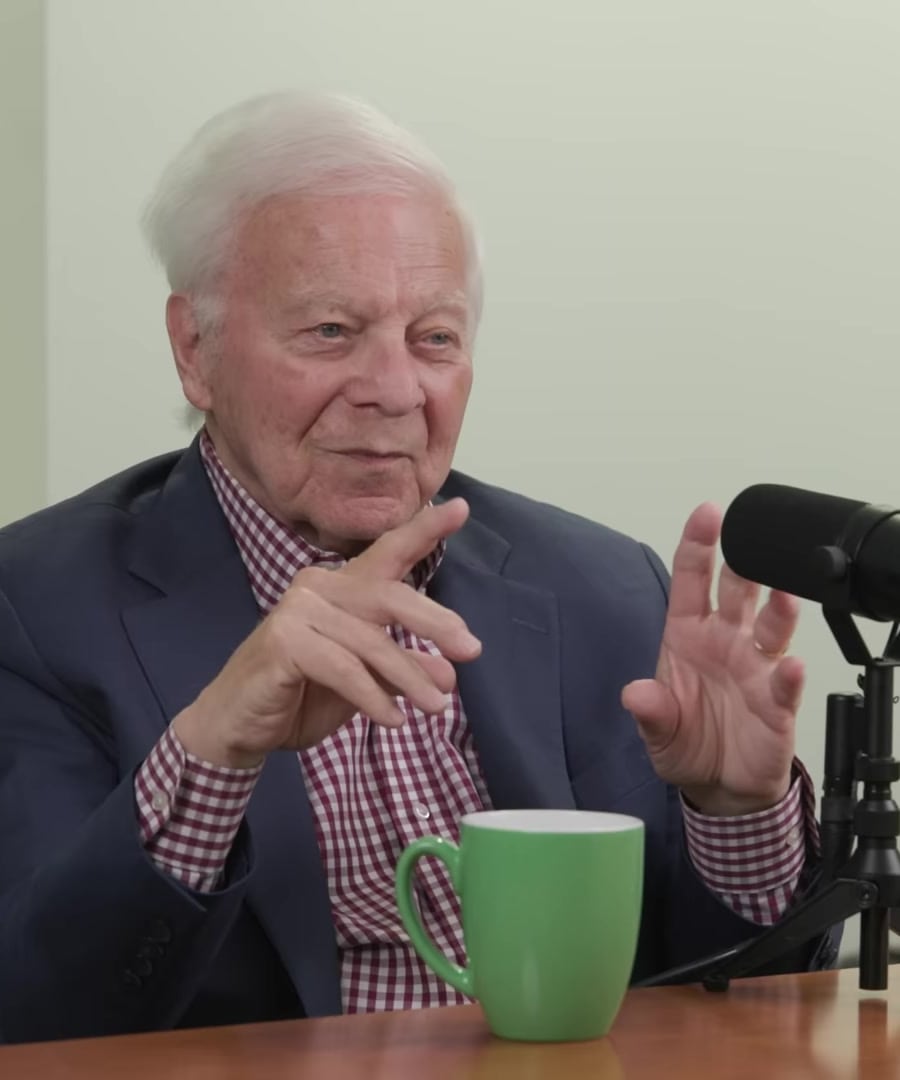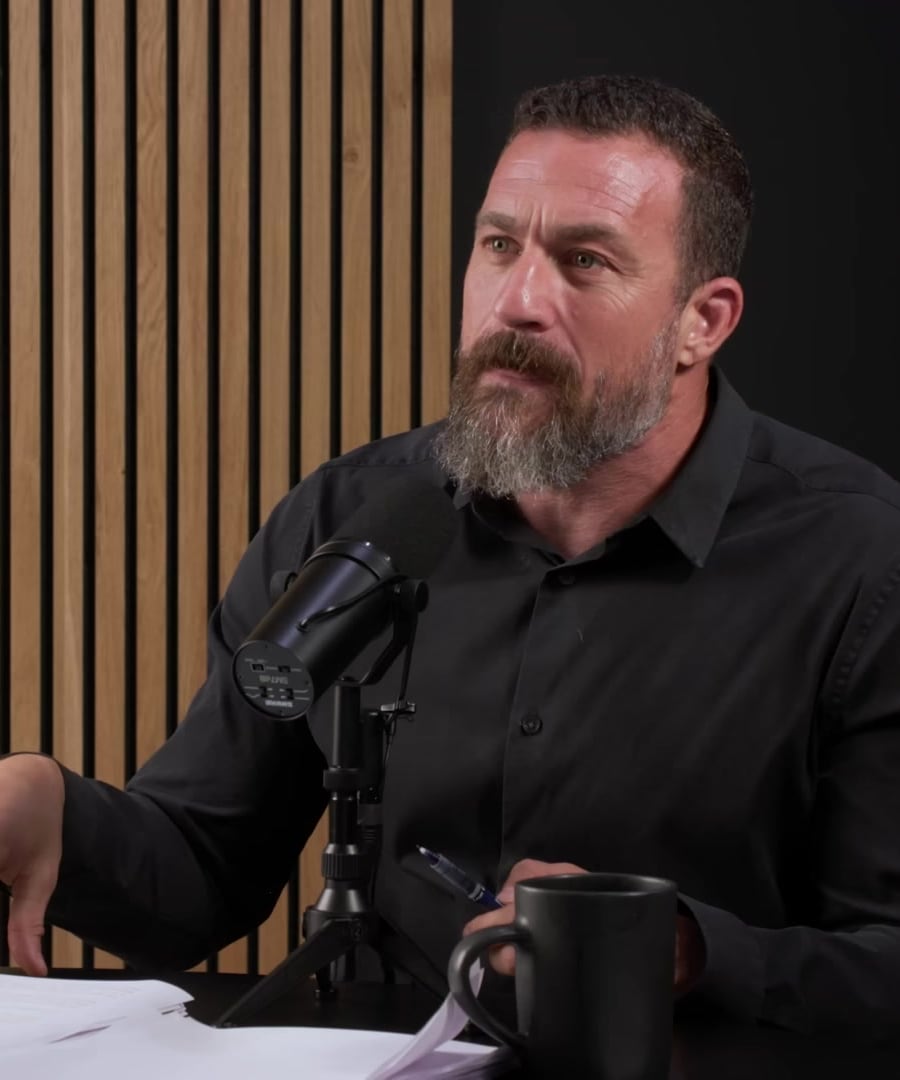Emotional coping mechanism
Sources:
Here are some insights from the on emotional coping mechanisms:
-
Understanding Emotions: Emotions are complex and vary from person to person. explains emotions shape our life experiences and influence our perception of events. He emphasizes that understanding your emotional responses can help you determine if they are valid or useful in a given context. Tools from psychology and neuroscience can help to enhance emotional range and navigate difficult situations, though professional guidance is often beneficial 1.
-
Short-term vs. Long-term Coping: , in conversation with , notes that while short-term coping mechanisms (like food, drugs, sex, alcohol, or even negative thoughts) can provide immediate relief, they often hinder long-term emotional change. These mechanisms can lead to addictive behaviors as they provide short-term soothing at the expense of long-term improvement. They suggest that understanding this distinction is crucial in managing emotional challenges effectively 2.
-
Self-Generated Tools: Journaling is highlighted as a valuable self-generated tool for managing emotions. It allows for reflection and processing of thoughts and feelings, which can be particularly useful when professional help isn't accessible. This practice can take various forms, such as carrying a journal and jotting down thoughts throughout the day or dedicating specific time to write in complete sentences. These methods can provide structure and aid in emotional management 2.
Understanding and employing these strategies can significantly aid in emotional regulation and overall mental well-being.
RELATED QUESTIONS-
Can you tell me more emotional coping tools?
Sources:
Here are additional emotional coping mechanisms discussed on the :
-
Journaling:
- , in conversation with , emphasizes journaling as a valuable tool for self-reflection and emotional processing. Journaling can be structured in different ways, such as carrying a journal throughout the day to jot down thoughts as they arise or setting aside time to write in complete sentences. This practice can help individuals process emotions in real-time and gain insight into their emotional states 1.
-
Understanding Emotional Range:
- Understanding your own emotional range and how it affects your perceptions is crucial. discusses how everyone's perception of emotions is slightly different. By acknowledging and exploring your unique emotional responses, you can better navigate difficult emotional situations and determine the validity of your emotional states 2.
-
Confronting Emotional Triggers:
- Addressing and confronting emotional triggers, rather than avoiding them, is an important coping strategy. However, warns against falling into the repetition compulsion, where confronting trauma repeatedly can sometimes reinforce the distress rather than alleviate it. Working with a skilled therapist can help navigate this balance effectively. For those unable to access professional help, self-generated tools like mindfulness practices or journaling can be particularly useful 1.
By incorporating these strategies, individuals can develop a more robust set of coping mechanisms to manage and process their emotions effectively.
RELATED QUESTIONS-
How do I confront emotional triggers?
Sources:
Confronting emotional triggers is a vital part of emotional healing, and there are several strategies discussed on the :
-
Deliberate Self-Exposure:
- explains that getting close to the trauma, re-experiencing it, and then adjusting your response helps to rewire your emotional reactions. This approach involves confronting the troubling memories or triggers voluntarily, allowing you to reduce their impact over time. This process must be approached with care to avoid simply reactivating the trauma 1.
-
Enhancing Emotional Resilience:
- Building emotional resilience is crucial for handling triggers effectively. advises that understanding your nervous system and practicing good self-care routines, such as ensuring good sleep and regular stress-reducing activities, help in maintaining a state of readiness. Techniques like physiological sighs can help manage immediate stress responses during triggering situations 2.
-
Facing Internal Narratives:
- Acknowledging and integrating both the intellectual and emotional aspects of yourself is important. emphasizes that many behaviors are driven by internal stories, often based on past experiences. Understanding and breaking these patterns can help in responding to triggers in healthier ways 3.
-
Dealing with Arousal:
- Managing the physiological arousal that arises from triggers involves recognizing the body's response and choosing an appropriate coping mechanism. and discuss options like healthy catharsis, telling the story, and sometimes temporarily packing down the emotions to remain functional. However, they stress the importance of eventually addressing these issues, possibly with the help of a skilled therapist 4.
By incorporating these strategies, you can develop a more effective approach to confront and manage emotional triggers.
RELATED QUESTIONS-
Tell me more about deliberate self-exposure techniques.
Sources:
Deliberate self-exposure involves actively confronting your fears, traumas, or emotional triggers to help rewire your emotional responses. Here are key insights on this technique from the :
-
Close Proximity to Trauma:
- emphasizes the importance of getting close to the phobia or trauma to rewire your response to it. This involves experiencing the troubling thing voluntarily and adjusting your emotional reaction, which helps reduce its impact over time. Huberman notes that moving away from anything that upsets us can increase anxiety and stress in the overall population 1.
-
Short Structured Interventions:
- Engaging in brief but deliberate stress-inducing activities can be effective. Huberman discussed how short interventions (like 5 minutes per day for two weeks) can be powerful when supported by a clinician. These activities might involve recalling traumatic events or engaging in stressful physical states, like cold exposure, to deliberately increase stress and recondition emotional responses 2.
-
Caution and Professional Support:
- Deliberate self-exposure must be approached carefully, especially for those with panic or anxiety disorders. Ideally, this practice should be done with the guidance of a clinician to ensure safety and effectiveness. The process is about controlled reactivation of stress responses — not overwhelming oneself but rather reconditioning responses to stressors 2.
By following these approaches, deliberate self-exposure can be a powerful tool in confronting and managing emotional triggers.
RELATED QUESTIONS-
What are different ways to journal?
Sources:
Journaling is a versatile tool for self-exploration, emotional processing, and mental health improvement. Here are different ways of journaling as discussed by on the :
-
Structured Journaling:
- This method involves setting specific goals and intentions for your journaling session. It focuses on writing about personal goals, aspirations, and desires for the future. This type of journaling can help foster a sense of agency and gratitude, contributing to overall mental health 1.
-
Transformative Journaling:
- Based on the work of James Pennebaker, this method requires writing about the most difficult experiences of your life for 15 to 30 minutes over several days. Although it may initially be distressing, this practice has been shown to lead to significant positive shifts in mental and physical health, including improved immune function and psychological well-being. It's crucial to allow yourself time to calm down after each session 2 3.
-
Free Associative Journaling:
- Known also as data dump or morning notes, this style involves writing freely about whatever comes to mind for a set period, typically in the morning. It is helpful for clearing mental clutter and organizing thoughts, which can enhance self-understanding and boost confidence 4.
-
Gratitude Journaling:
- While not the focus of Huberman's specific protocol discussions, gratitude journaling, which involves writing about things you're grateful for, can significantly improve happiness, reduce anxiety, and enhance relationships 5.
-
Expressive Writing:
- Another powerful journaling technique, expressive writing asks you to write about your deepest thoughts and feelings regarding an emotional issue or traumatic event. Supported by over 200 studies, this method is shown to reduce symptoms of PTSD, improve immune function, and decrease healthcare visits 6.
These different journaling methods can be tailored to your personal needs and goals, whether for emotional relief, mental clarity, or deeper self-exploration.
RELATED QUESTIONS-
Are there tips for effective journaling?
Sources:
has discussed various tips to make journaling more effective on the . Here are some key tips:
-
Designate Quiet Time:
- Ensure you have a quiet, uninterrupted space to journal. This is crucial to allow deep focus and emotional processing without distractions 1.
-
Write Continuously:
- For structured journaling, write continuously for the entire session (15-30 minutes). Don't stop to correct grammar or spelling; just keep the hand moving or fingers typing to maintain flow 1.
-
Include Key Elements:
- When journaling about difficult experiences, include the following:
- Facts about the experience.
- Emotions felt during the experience and current emotions.
- Links to present situations, plans for the future, or other memories 2.
- When journaling about difficult experiences, include the following:
-
Allow Transition Time:
- After journaling, give yourself 5-15 minutes to calm down and transition back into daily activities. This helps reset your autonomic system and return to a normal state 3.
-
Routine and Consistency:
- Journal consistently, whether daily or a few times a week. Consistency enhances the benefits, but the exact frequency can be tailored to your needs 4.
-
Free Association:
- Use free associative journaling to clear mental clutter. Write whatever comes to mind without worrying about format, structure, or content 4.
-
Privacy:
- Ensure your journaling is private. This freedom encourages honesty and deeper self-reflection without fear of judgment 1.
-
Worry Journaling:
- For improved sleep, consider writing down your worries an hour or two before bed. This can help "close emotional tabs" and make it easier to fall asleep 5.
Following these tips can help maximize the benefits of journaling for both mental and physical health.
RELATED QUESTIONS-
Emotional coping mechanism
- RELATED QUESTIONS
Can you tell me more emotional coping tools?
- RELATED QUESTIONS
How do I confront emotional triggers?
- RELATED QUESTIONS
Tell me more about deliberate self-exposure techniques.
- RELATED QUESTIONS
What are different ways to journal?
- RELATED QUESTIONS
Are there tips for effective journaling?
- RELATED QUESTIONS















